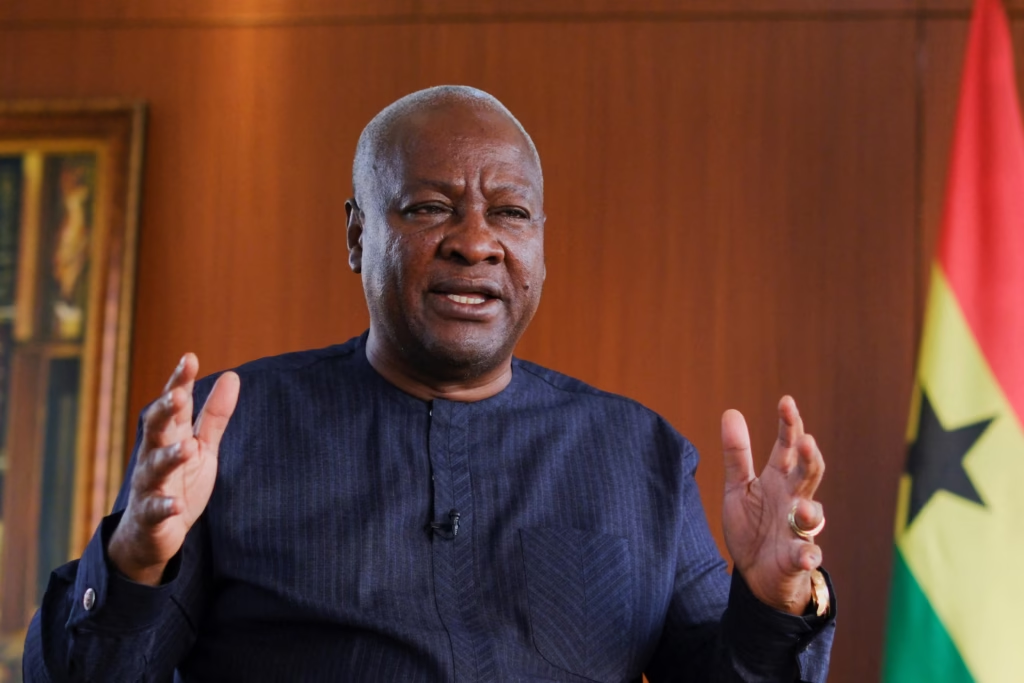A Call for Fiscal Discipline and Economic Stability
President John Dramani Mahama has underscored the critical importance of responsible fiscal management and the independence of the Bank of Ghana (BoG) in ensuring the nation’s economic stability. Speaking at the swearing-in ceremony of the BoG Governors, Mahama outlined his administration’s commitment to avoiding the pitfalls of excessive money printing and political interference in central banking.
“When government resorts to unsustainable consumption, expenditure, and finance by excessive and unregulated printing of money, the consequences can be severe,” Mahama warned. His remarks come at a time when Ghana, like many nations, is navigating economic challenges exacerbated by global inflation and post-pandemic recovery.
The Risks of Excessive Money Printing
President Mahama highlighted the dangers of unregulated money printing, a practice that can lead to devastating economic outcomes:
1. Spiraling Inflation
Excessive money supply without corresponding economic growth can cause inflation to skyrocket, eroding the purchasing power of citizens.
2. Erosion of Incomes
As prices rise, real incomes fall, pushing more people into poverty and widening inequality.
3. Loss of Public Confidence
When financial institutions are perceived as unstable, public trust in the economy diminishes, further complicating recovery efforts.
For a deeper understanding of inflation and its impacts, visit the International Monetary Fund (IMF).
Protecting the Independence of the Bank of Ghana
President Mahama emphasized the need to safeguard the independence of the Bank of Ghana, ensuring it operates free from political interference.
“As president, I am committed to ensuring that the central bank operates free from political interference, guided solely by its mandate,” he affirmed. “This is the path to building a resilient economy. One where policies are driven by discipline, foresight, and the best interest of the Ghanaian people.”
The BoG’s independence is crucial for maintaining monetary stability and fostering long-term economic growth. Learn more about the BoG’s mandate on their official website here.
A Commitment to Responsible Fiscal Management
Mahama’s administration is focused on adhering to strict fiscal discipline and legal frameworks to mitigate economic risks. Key measures include:
- Avoiding Excessive Money Printing: Ensuring that monetary policies align with economic realities.
- Promoting Transparency: Building public trust through accountable governance.
- Strengthening Institutions: Supporting the BoG and other regulatory bodies to function effectively.
A Vision for a Resilient Economy
President Mahama’s vision for Ghana’s economy is one of resilience, inclusivity, and sustainability. By prioritizing fiscal responsibility and central bank independence, his administration aims to:
- Protect Incomes: Ensure that Ghanaians can maintain their purchasing power.
- Reduce Poverty: Implement policies that uplift vulnerable communities.
- Foster Confidence: Restore public trust in financial institutions.
“One thing for sure, I’m not going to come and ask you to print more money,” Mahama declared, reinforcing his commitment to prudent economic management.
Join the Conversation: Building a Better Ghana
The path to economic stability requires collective effort. Here’s how you can contribute:
- Stay Informed: Educate yourself about fiscal policies and their impacts.
- Hold Leaders Accountable: Advocate for transparency and responsible governance.
- Support Local Initiatives: Promote economic activities that drive growth and create jobs.
For more insights on Ghana’s economic policies, visit the World Bank’s Ghana Economic Update.



